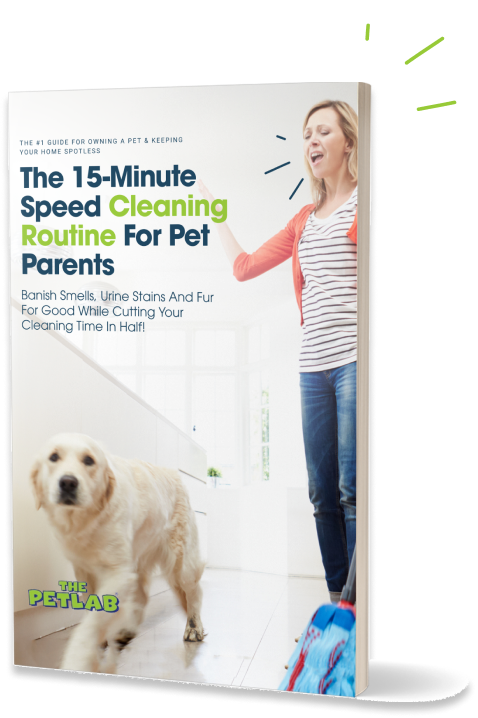What do pet waste, motor oil, pesticides, and road salt have in common? We'll give you a moment to mull it over.
Ready for the answer?
They're all pollutants! 😲 Mm-hmm. Fido's doody isn't just icky and smelly—it can affect our ecosystem, harm the environment, and make us sick.
Wait, seriously?!
YES!
In fact, the Environmental Protection Agency categorises pet waste as diffuse or nonpoint sources of pollution—contaminants in the same class as toxic chemicals and insecticides.
That's because pet waste contains parasites, bacteria, and viruses that can be transmitted from animals to humans. (Some strains are even resistant to medication.) These harmful microorganisms get into our waterways, the air we breathe and surfaces like sidewalks, the bottoms of our shoes, soil/artificial turf, and eventually into our homes.
That's too close for comfort.
Fortunately, when it comes to zoonotic diseases, forewarned is forearmed!
Pathogens in pet waste
Here are the health risks associated with pet waste.
Bacteria
Let's start with an eye-opener: The average canine defecates around 2kg of poop per week. Meanwhile, just one gram of doggy doo-doo carries approximately 23 million faecal coliform bacteria. 😱 On that note, here's what could be living in your furry friend's excrement.
- Escherichia coli: Most strains of E. coli are harmless, but others—particularly the E. coli O157:H7 strain—can cause severe illness beyond brief diarrhoea.
- Salmonella: Expect the runs, stomach cramps, and fever. Salmonella can also get into the bloodstream, where it may affect other organs and tissues.
- Campylobacter: C. jejuni is a leading cause of bacterial gastroenteritis in Australia, so take this risk seriously, especially if your pet has diarrhoea—and you don't want to follow suit!
- Helicobacter: While many Aussies get H. pylori and have no symptoms, that doesn't mean you can be complacent. This nasty bug attacks the stomach and intestine, causing chronic inflammation and peptic ulcers. Infection also increases the risk of cancer.
- Leptospira: This is transmitted via pet urine and can lead to a life-threatening disease called leptospirosis. This isn't just a "rural problem" either—it exists in urban areas, too.
Viruses
- Parvovirus: This notorious virus is found in high concentrations in dog faeces. It's highly contagious and stable in almost any environment, making it one of the most dangerous canine diseases.
Parasites
Here's a sobering fact: Parasites can survive weeks, if not months, in the right environment. *Shudder* 😖
- Toxoplasma gondii: A parasite in cat poop that infects up to 125,000 individuals yearly in Australia. It can have dire consequences for pregnant women and unborn babies.
- Worms: Tapeworms, roundworms, hookworms, whipworms—these intestinal parasites are shed in pet poop and can infect humans in many ways, like walking barefoot, gardening, and from flies landing on your food/dishes.
- Cryptosporidium: Not the kind of 'crypto' you want, that's for sure. This one spreads via the poop-to-mouth route and causes an unpleasant diarrhoeal disease called cryptosporidiosis. It can last up to two weeks!
- Giardia: A villain that causes around 600,000 cases of giardiasis, an undesirable bowel disease, each year. That's in people, not pets! Drug resistance is also rising.
Who’s at risk?
Most of the "bad boys" listed here cause flu-like symptoms or tummy-related discomforts. But they can also lead to more grave conditions like pneumonia, meningitis, kidney failure, neurological disease, and even death.
And who are most susceptible?
- Our children. They play on all fours and regularly stick their fingers in their mouths.
- Seniors and the immunocompromised. Their bodies aren't as adept at fighting off disease.
- Other pets in a multi-pet household. They're prone to catching whatever is circulating in their immediate environment.
So, what now?
As with most things, proactive measures are better than reactive ones. These preventive steps will help keep unwanted sickness away.
- Handwashing is your first line of defence against disease! It prevents around 30% of diarrhoeal maladies, so wash with soap and water after handling animals, waste, or pet belongings. Also, before food prep and eating!
- Bathe and groom your pet regularly. Our wide range of grooming accessories makes bath time pleasant for Fido—and easier for you.
- Protect open wounds/nicks! Apply waterproof bandaids. Wear gardening gloves. Use poop bags to safely handle and dispose of pet waste.
- Remove waste ASAP. Waiting for it to dry out, decompose, or wash away with rain raises the risk of exposure. For everyone!
- Clean and disinfect your home. This includes all hard and soft surfaces, germ hotspots, pet items, household textiles (like sheets, carpets, rugs), and clothing. Score huge savings on all your cleaning needs when you shop our Bundle & Save deals. ☺️
- Maintain your garden. Whether grass or artificial turf, clear outdoor spaces of pet messes.
- Stick to your pet's vaccination and deworming schedule. These aren't arbitrary—it's to protect your pet, household, and the community.


